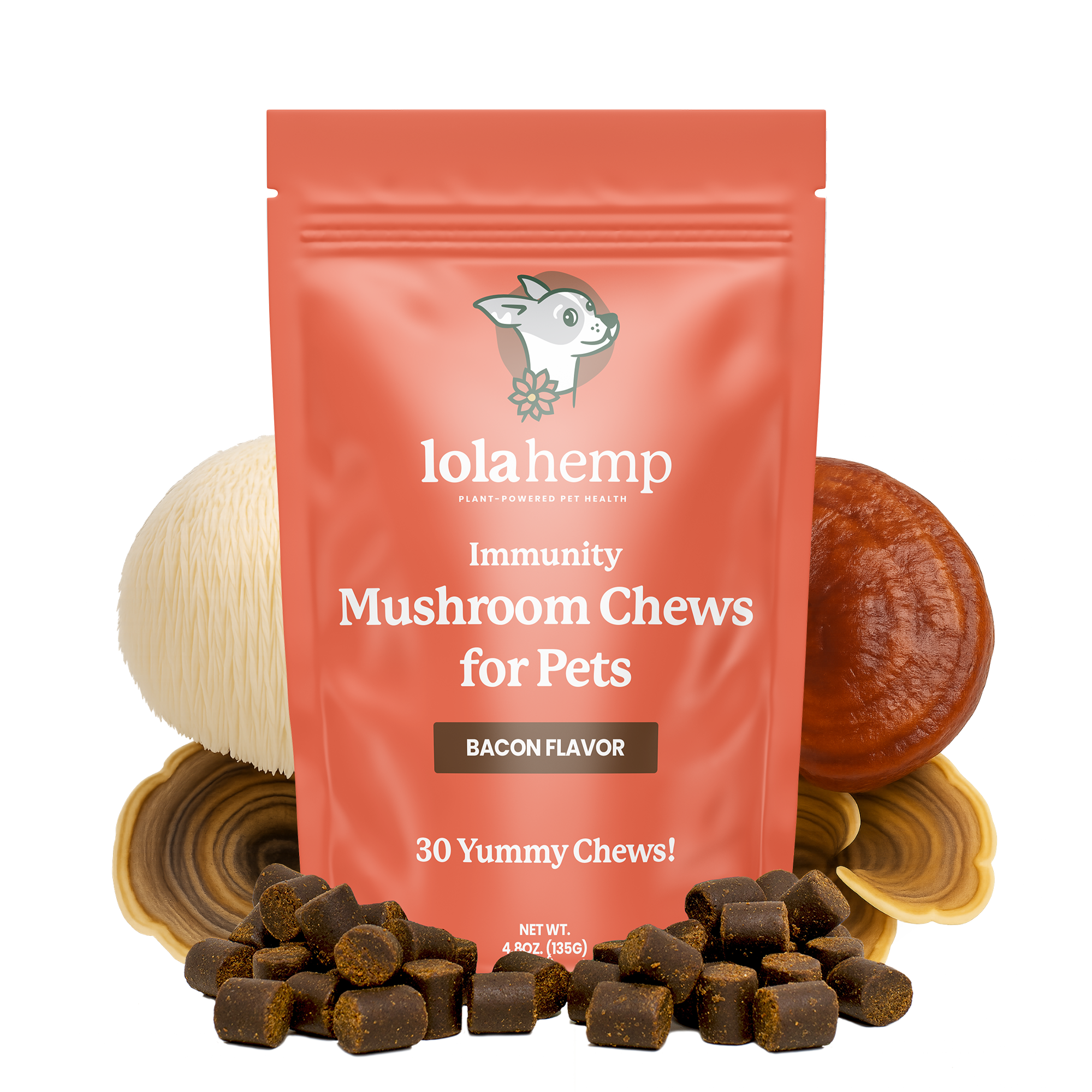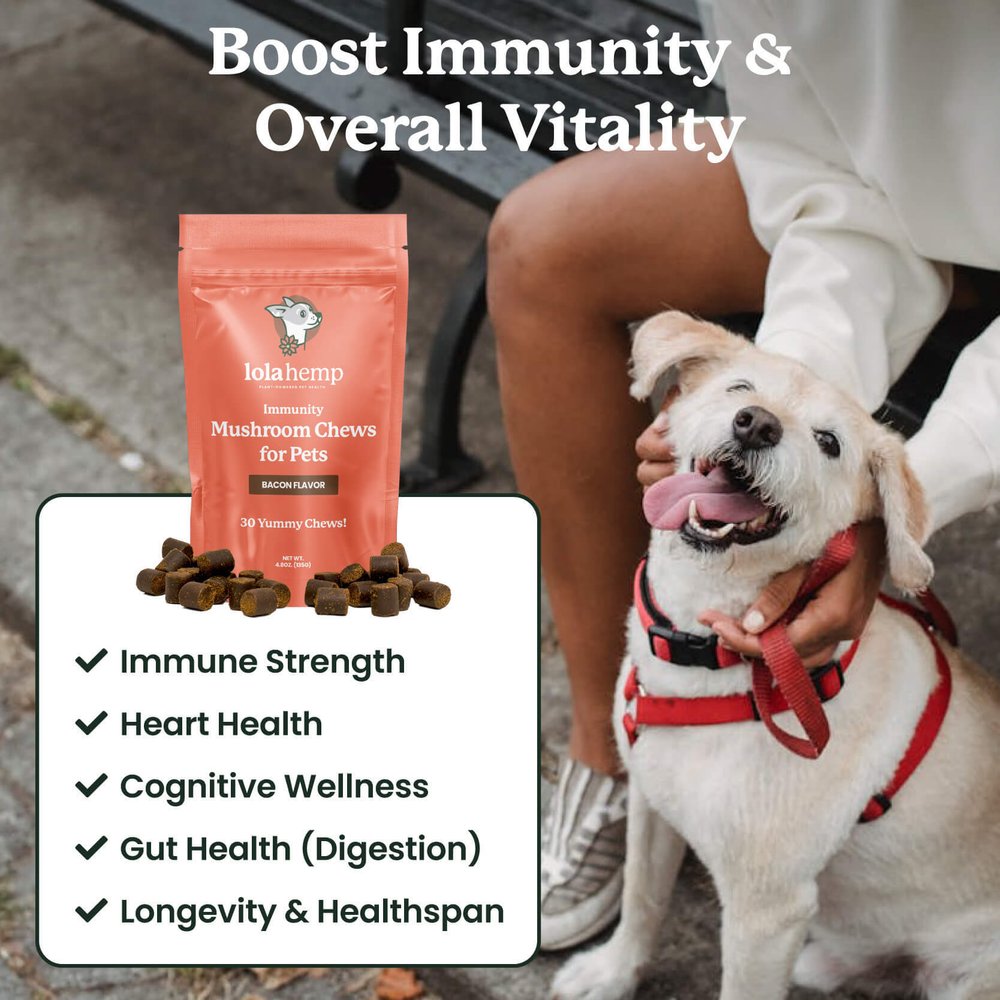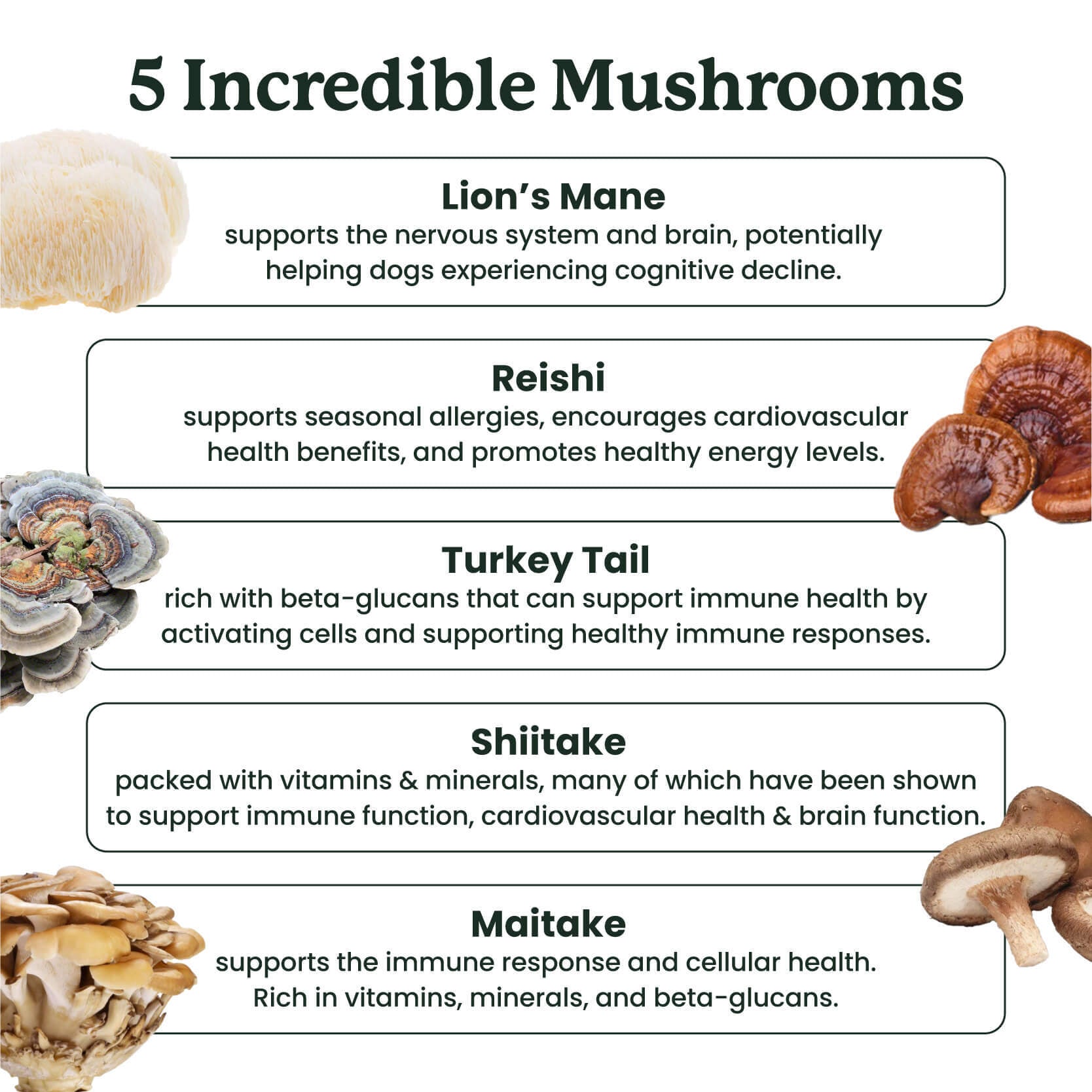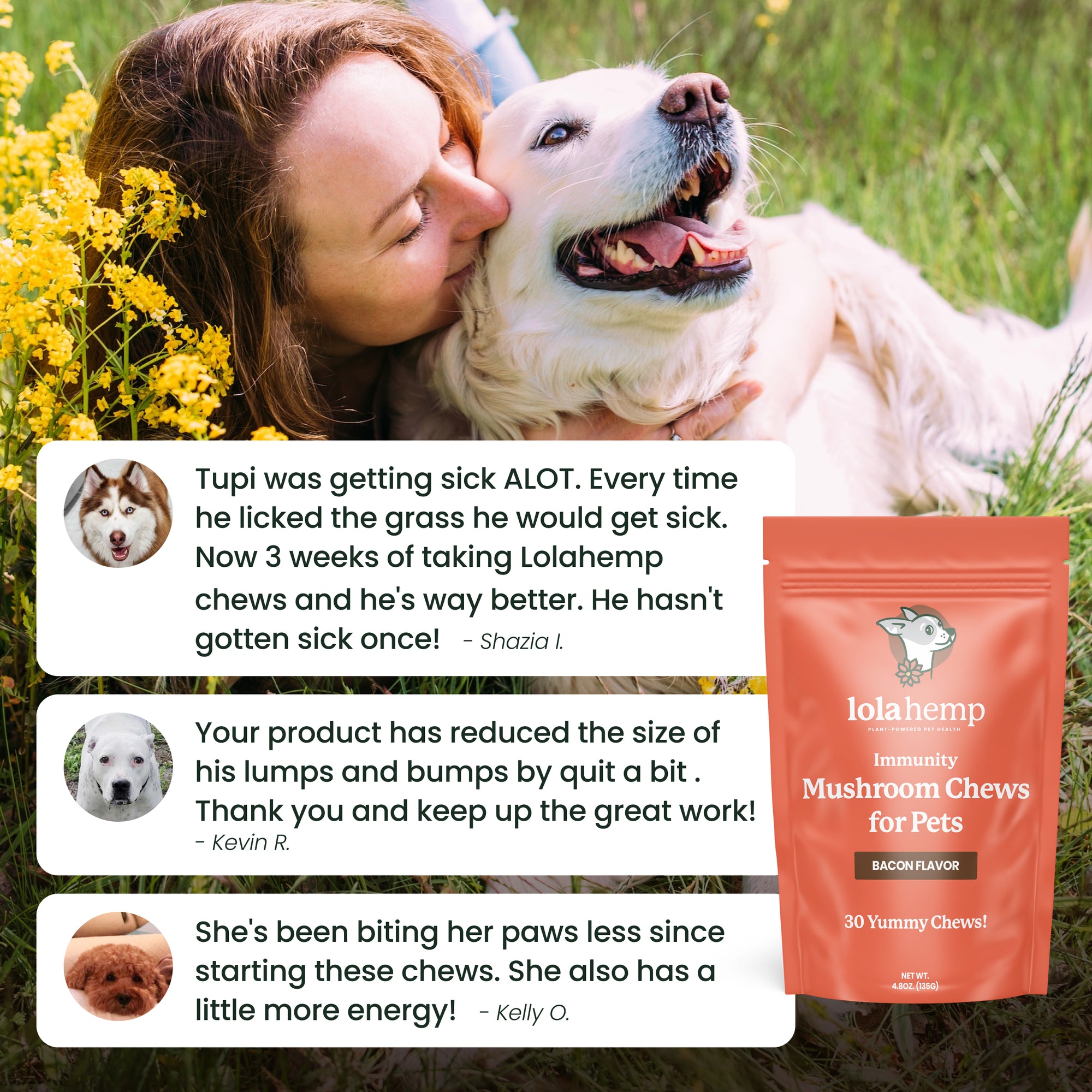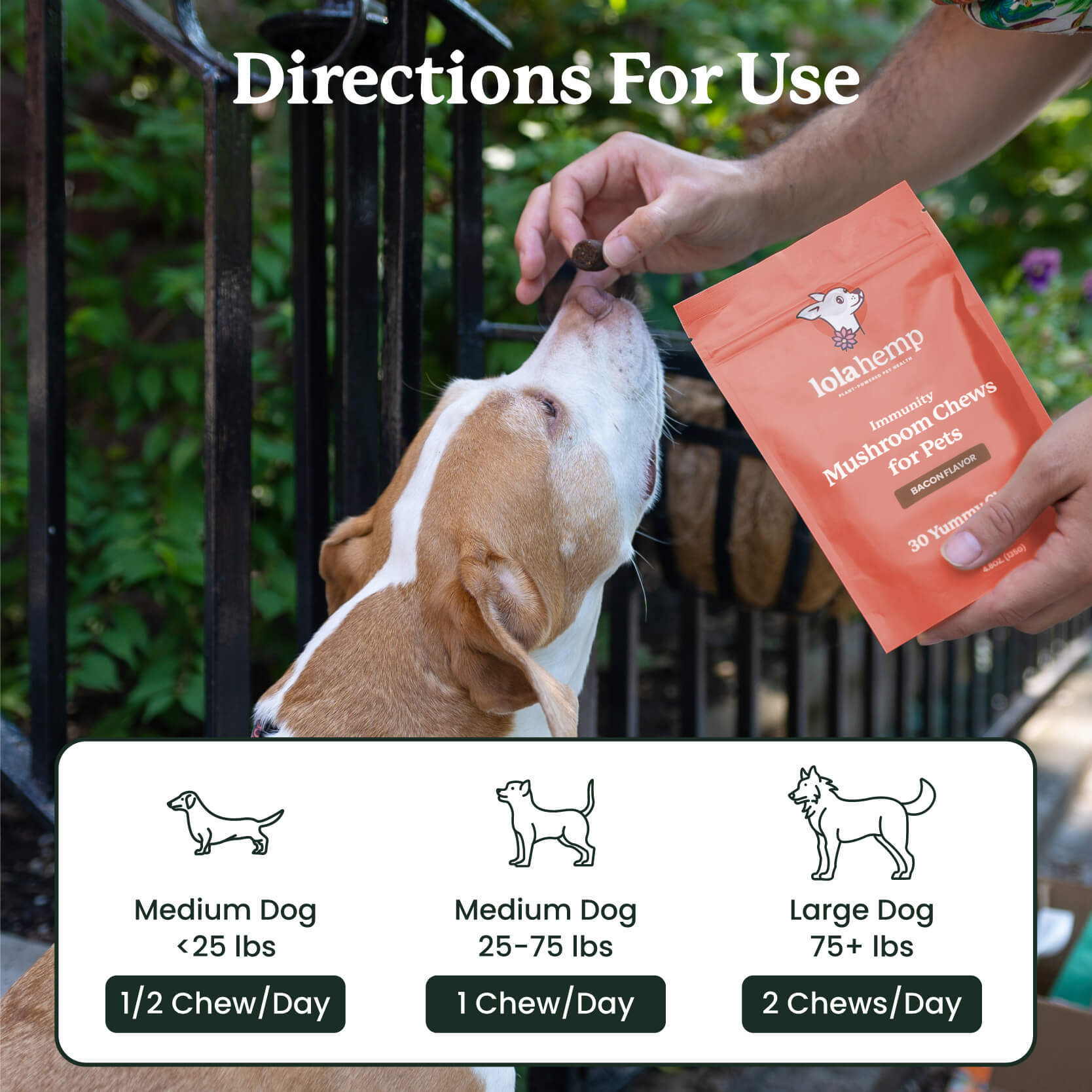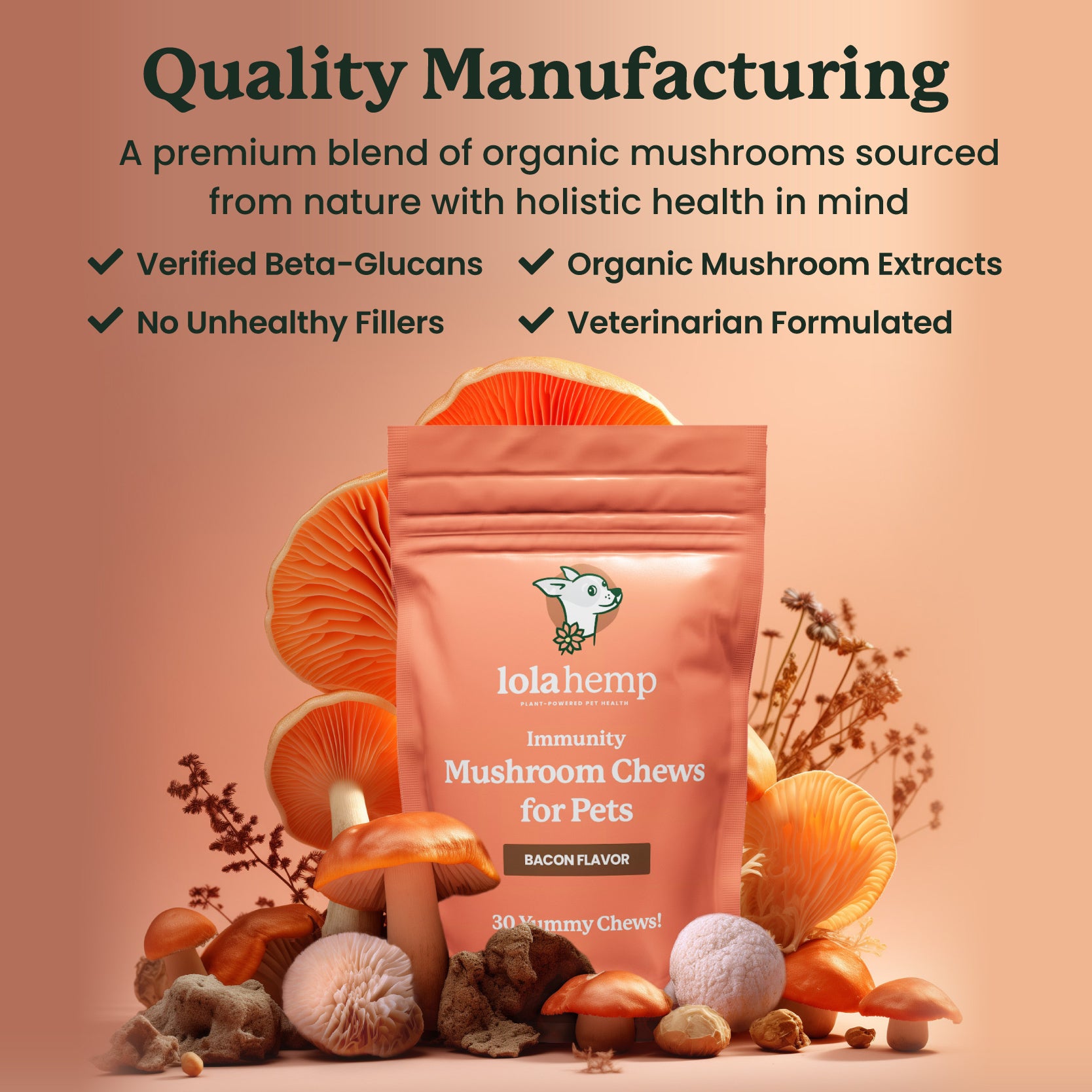Probiotics and prebiotics are both important for your dog’s digestive health, but they do different things. Probiotics are live, good bacteria that help keep the gut balanced, improve digestion, and boost the immune system by fighting off harmful bacteria.
Prebiotics, on the other hand, are fibers that feed the beneficial bacteria in your dog’s gut, helping them grow and thrive. When combined, probiotics and prebiotics work together to support a healthy dog free of common canine digestive issues.
Prebiotics vs. Probiotics for Dogs
While probiotics alone can be valuable for replenishing your dog's microbiome, combining them with prebiotics is a smart match. Prebiotics are nutrients that feed the beneficial bacteria in your dog's gut, helping them thrive and multiply.
Fruits, vegetables, and whole grains are great sources of prebiotics. Generally, prebiotics provide a source of non-digestible fiber.
Most high-quality dog foods contain prebiotic ingredients. You can also feed your dog fruits and vegetables to supplement their regular food. Just be sure to avoid grapes, raisins, and other foods toxic to dogs.

5 Common Prebiotics & Probiotics for Dogs
The following items are some of the common prebiotics and probiotics that are safe for dogs. You can incorporate these into your dog's diet in an attempt to improve their digestive health.
It's always important to discuss new dietary changes with your veterinarian to ensure you're doing it safely, particularly if your dog has health issues or is on medications.
1. Pumpkin – Prebiotic
Pumpkin is a natural source of fiber that acts as a prebiotic, helping to feed the beneficial bacteria in your dog’s gut. It supports healthy digestion and can help with both constipation and diarrhea.
2. Chicory Root – Prebiotic
Chicory root is rich in inulin, a type of fiber that promotes the growth of beneficial bacteria in the digestive tract. It’s commonly found in many dog food formulas and supplements for its gut-supporting properties.
3. Lactobacillus Acidophilus – Probiotic
Lactobacillus acidophilus is one of the most well-known probiotics for dogs. It helps balance the gut microbiota, improves digestion, and boosts the immune system by crowding out harmful bacteria.
4. Bifidobacterium – Probiotic
Bifidobacterium is another common probiotic that aids in breaking down fiber and producing essential vitamins. It’s particularly beneficial for dogs with gastrointestinal issues and helps maintain a healthy gut flora balance.
5. Saccharomyces Boulardii – Probiotic
Saccharomyces boulardii is a beneficial yeast that supports gut health by promoting the growth of good bacteria. It's often used to help restore balance during digestive upset and can be especially helpful during or after antibiotic treatments.
Conclusion
Prebiotics and probiotics are essential counterparts for your dog's overall gut biome and digestive health. If your dog has digestive issues or other common health concerns, you might want to discuss prebiotics or probiotics with your veterinarian.
There are common foods and dietary options to support your dog's gut biome, so incorporating gut-health supplements can be easy to do.
Prebiotics vs Probiotics for Dogs: Frequently Asked Questions
Are prebiotics or probiotics better for dogs?
Neither is better—they serve different roles. Probiotics add beneficial bacteria, while prebiotics feed those bacteria to help them thrive.
Can dogs take prebiotics and probiotics every day?
Many dogs can safely take both daily, but it's important to ask your veterinarian about ideal types and dosages.
Do prebiotics and probiotics help with dog diarrhea?
Yes, both can support healthy gut function and may help regulate stool consistency during digestive upset.
What foods contain natural prebiotics for dogs?
Foods like pumpkin, chicory root, bananas, and certain whole grains provide natural prebiotic fiber.
How long does it take for probiotics to work in dogs?
Some dogs show improvement within a few days, while full microbiome support may take several weeks.

